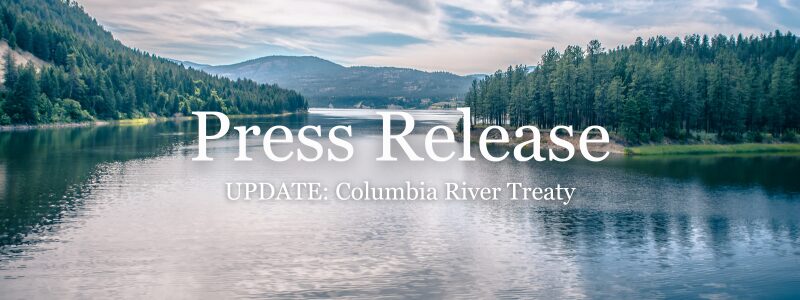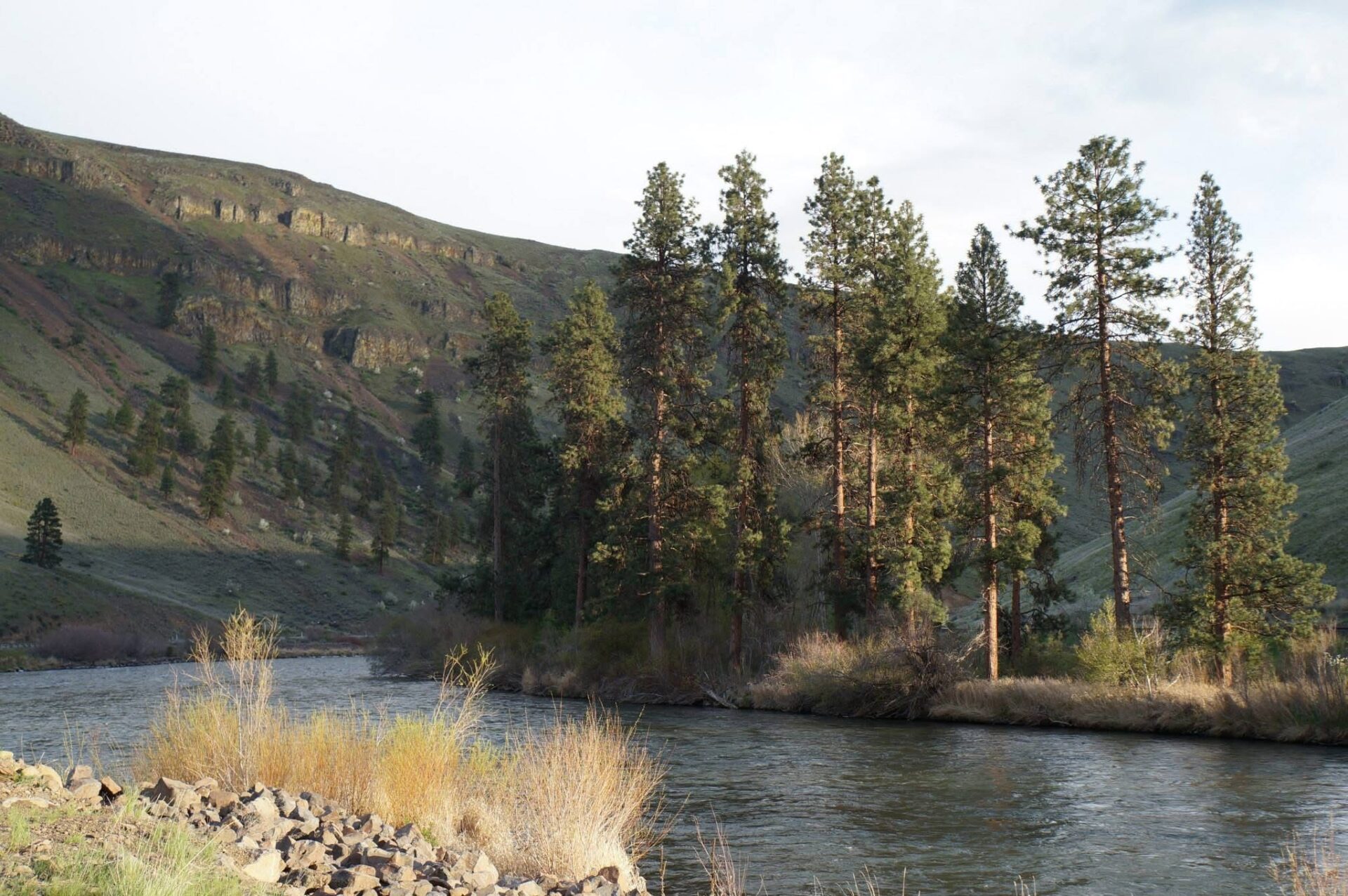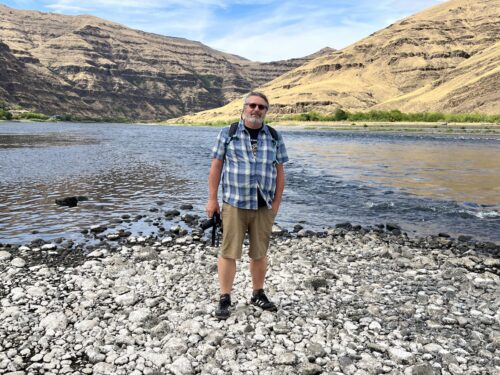A new proposed federal rule from the Trump Administration revives a long-standing effort to deregulate…

Columbia River Treaty “Agreement in Principle” Prioritizes Hydropower and Flood Control Over the Needs of Imperiled Salmon and River Health
RELEASE FROM THE COLUMBIA RIVER TREATY NON-GOVERNMENTAL ORGANIZATION CAUCUS
Northwest civic, faith, clean energy and conservation organizations express frustration and disappointment that today’s announcement of an “Agreement in Principle” between the United States and Canada does not adequately address the crisis facing the Columbia River ecosystem and its dwindling salmon and steelhead runs. The Agreement continues to maintain the primacy of hydropower and flood control over the needs of struggling anadromous fish populations. It leaves critical, unresolved questions regarding health of the river and uncertainty and risk for fish populations facing extinction today.
“The health of the Columbia River must become an explicit purpose and priority in a new, modernized Treaty,” said Joseph Bogaard of the Save Our wild Salmon Coalition, who chairs the Columbia River Treaty NGO Caucus. “The Columbia Basin is out of balance today. A modernized Treaty must become a tool for restoring balance. Salmon advocates have serious concerns with this Agreement in Principle. In its current form, it means continued risk and uncertainty for this historic river, its native fish populations and the many benefits they bring to our communities.”
“U.S. Treaty governance must expand to include Indigenous expertise and with a committed federal steward of the Columbia River’s health under a renewed Treaty in order to deliver healthier river conditions for both people and salmon. We’ll continue working hard to ensure these kinds of changes are made.”
Many Columbia River tribes have long called for Ecosystem Function, i.e. the health of the river and native fish, to be added as a new, third Treaty purpose, joining power production and flood management. Increasingly, hot reservoir waters kill imperiled fish and support toxic algae blooms — with worse to come as our planet continues to warm.
“Northwest people and salmon need a modern Treaty that is a strong asset for, not an impediment to, a healthier and more resilient Columbia River,” said Bill Arthur of the Sierra Club. “Support for including Ecosystem Function as a new pillar to the treaty was included in the Regional Recommendation, and broadly supported by the public. It is hugely disappointing that it is absent from the Agreement in Principle. The agreement focuses on revenue for BPA and customers while the salmon and Columbia River are left with a status quo that was already inadequate.”
“We are optimistic that this Agreement in Principle for a modern Treaty brings more balance to the power system relationship between the US and Canada. It is long overdue and the savings should be used to help the Northwest meet our climate, clean energy and salmon recovery goals”, said Nancy Hirsh, executive director of NW Energy Coalition. “The Agreement raises many questions about transmission and power management and the details to come will be critical to get right.”
“People of faith and conscience across our region strongly support the addition of Ecosystem Function as a co-equal purpose for the revised Columbia River Treaty,” said Rev. AC Churchill of Earth Ministry and Washington Interfaith Power and Light. “A properly revised treaty must carve a new path that prioritizes the health of the river, all surrounding life and Indigenous wisdom. This new path would, at last, codify that the river is more than a power source, but is life itself.”
“We are disappointed that the Agreement in Principle fails to provide more water for salmon, despite scientists recommending higher streamflows for migratory fish in the river,” said Neil Brandt, executive director of WaterWatch of Oregon. “Salmon have suffered tremendous losses through the industrialization of the Columbia Basin’s rivers, in part, as a result of this Treaty. A modernized Treaty must do better for salmon in terms of streamflows in the Columbia and Kootenai rivers, and in terms of operations of the dams encompassed by the Treaty.”
For 60 years, Treaty dams and reservoirs, and the wider dam operations they made possible, have damaged and destroyed the homes, cultures and foods of the Columbia Basin’s Indigenous people. Basin Tribes were not consulted in the initial 1964 agreement, though the Treaty’s heaviest costs were imposed upon them. Our Caucus supports the Tribes’ request that the U.S. add Ecosystem Function to the Treaty’s purposes and a formal Tribal role in Treaty implementation.
“The U.S. government recognizes that Northwest Tribes continue to be significantly impacted by the construction and operation of federal dams in the Columbia River Basin,” said Bogaard. “We ask the government to match its words with deeds as negotiations move forward with Canada. For the U.S., the structure of Treaty governance is a domestic decision requiring no negotiation with Canada. The Biden administration could make the change tomorrow if it chose to do so.”
The Agreement in Principle makes it clear that Treaty operations for flood management in the Columbia will soon change. “Such changes, if done without careful attention to the health of the river, and without full partnership of residents and communities, could upend vital salmon flows, perpetuate harms to Tribal and non-tribal communities, and limit our region’s options to address warming waters,” said Bogaard.
“We ask Congress and the Army Corps of Engineers to immediately fund and undertake the analysis of flood management changes the U.S. government committed to more than a decade ago. We also ask the Army Corps of Engineers to conduct intensive, regular engagement on flood operations, beginning now, with affected communities, tribes and citizens.”
As the Agreement in Principle evolves into a modernized Columbia River Treaty over the next year, Northwest people must remain fully and consistently engaged. Similarly, their views and concerns must be carefully considered. “Ten years ago, thousands of Northwest citizens urged the federal government to make the health of the river a Treaty purpose and do long-delayed justice to Columbia Basin tribes,” said Dr. John Osborn of One River, Ethics Matter (OREM).
“In 2023, the vast majority of speakers at three public listening sessions again asked that ecosystem function become a third Treaty purpose, and Treaty governance expand to support both justice and the Columbia’s health. Throughout the final talks now beginning, Northwest residents need to hear from and be listened to regularly by U.S. negotiators.”
The Columbia River Treaty Non-Governmental Organization Caucus was created in 2012. Members include the Center for Environmental Law and Policy, Earth Ministry and Washington Interfaith Power and Light, League of Women Voters of Washington, National Resources Defense Council (NRDC), Northwest Energy Coalition, One River Ethics Matter (OREM), Save Our wild Salmon Coalition, Sierra Club, and WaterWatch of Oregon. See the enclosed backgrounder on the Columbia River Treaty and further reaction from caucus members below. More at https://columbiarivertreaty.org.



